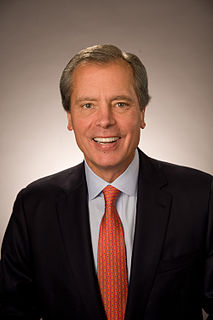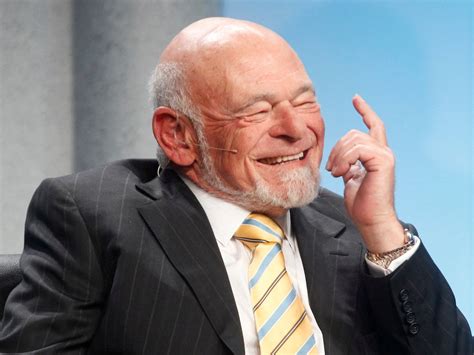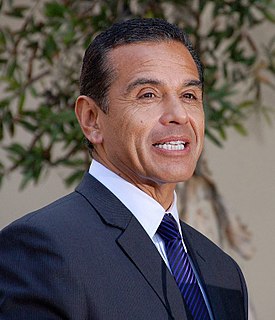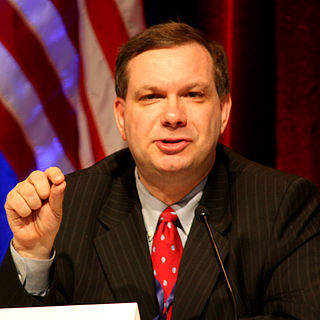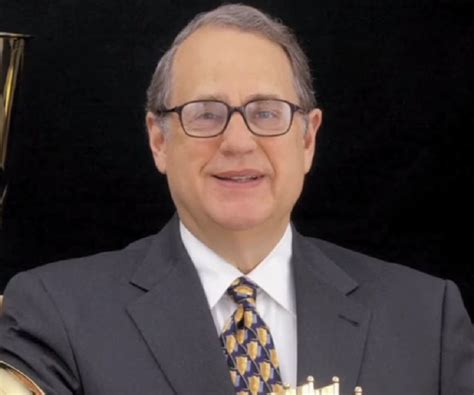Top 1200 Tax Rates Quotes & Sayings - Page 13
Explore popular Tax Rates quotes.
Last updated on December 19, 2024.
It is a wise rule and should be fundamental in a government disposed to cherish its credit, and at the same time to restrain the use of it within the limits of its faculties, "never to borrow a dollar without laying a tax in the same instant for paying the interest annually, and the principal within a given term; and to consider that tax as pledged to the creditors on the public faith."
Fundamentally, I've always been a fan of actually looking at our whole state tax system and really figuring out how we reform our tax system so that everyone's paying their fair share but we don't have a lot of nickel and diming with 100 taxes that end up hitting people that maybe can't bear it the most.
If the economy of today were operating close to capacity levels with little unemployment, or if a sudden change in our military requirements should cause a scramble for men and resources, then I would oppose tax reductions as irresponsible and inflationary; and I would not hesitate to recommend a tax increase if that were necessary.
If one individual, or one class, can call in the aid of authority to ward off the effects of competition, it acquires a privilege and at the cost of the whole community; it can make sure of profits not altogether due to the productive services rendered, but composed in part of an actual tax upon consumers for its private profit' which tax it commonly shares with the authority that thus unjustly lent its support.
The underlying strategy of the Fed is to tell people, "Do you want your money to lose value in the bank, or do you want to put it in the stock market?" They're trying to push money into the stock market, into hedge funds, to temporarily bid up prices. Then, all of a sudden, the Fed can raise interest rates, let the stock market prices collapse and the people will lose even more in the stock market than they would have by the negative interest rates in the bank. So it's a pro-Wall Street financial engineering gimmick.
Every presidential candidate for decades has released his tax returns, and I've released 33 years of my tax returns. The American people deserve to know about our taxes. And so Donald Trump is standing in the way of precedent that goes back on both sides of aisle Democrats and Republicans, and he clearly has something that he doesn't want us to see.
One of the tax systems in the US is for wage earners. The government takes money from them out of each paycheck - so it knows how much they make, and those workers can't cheat to any significant degree. But the other tax system is for capital. Those with capital get to tell the government what they want to tell. They may get audited, but if their tax returns are of any size the government doesn't have enough of the smart auditors to figure out what's really going on. And there are the rules that allow you to do things like take in money today and pay taxes on it thirty years from now.
All taxes, except a 'lump-sum tax,' introduce distortions in the economy. But no government can impose a lump-sum tax - the same amount for everyone regardless of their income or expenditures - because it would fall heaviest on those with less income, and it would grind the poor, who might be unable to pay it at all.
We pursued the wrong policies. George Bush is not on the ballot. Bill Clinton is not on the ballot. Mitt Romney is on the ballot, and Barack Obama is on the ballot. And Mitt Romney is proposing tax reform, regulatory reform, a wise budget strategy and trade. The president has proposed tax increases.
Wall Street is being investigated, but they are not asleep while it's being done. You see where the Senate took that tax off the sales of stocks, didn't you? Saved 'em $48,000,000. Now, why don't somebody investigate the Senate and see who got to them to get that tax removed? That would be a real investigation.
It's tax day and while many Americans are filing their taxes with a groan, taxpayers in the Badger State have reason to cheer. In Wisconsin, we have enacted more than $2 billion in tax cuts, giving our citizens much-needed relief, call us crazy Midwesterners but we think you know how to spend your money better than the government.
The real estate lobby has prominent allies in both parties. After the last major overhaul of the tax code, in 1986 - under a Republican president, Ronald Reagan, a Republican Senate and a Democratic House - it was a Democrat, Bill Clinton, who signed legislation that restored lost real estate tax breaks seven years later.
We do it all the time, we legislate taste. We do it with the tax code. Churches and children get a tax break, because it's assumed that we all agree that we want to encourage churches and children. I don't. I don't. That's my opinion. I don't want to encourage either churches or children, and it's a very bad idea to put them together.
All my adult life, I have lived with Labour lies about tax cuts. Their cry is always the same. Tax cuts are impossible in a civilised society. They mean less revenue for the state, which means sacked teachers, unemployed doctors, fewer nurses. I am amazed anyone still takes such arrant twaddle seriously.
Generally, an indie film in the U.K. is put together much like in the states. We got a tax credit. You sell the domestic rights, which can be quite low, but it's enough to push you over the line. And you get a tax credit on top of that, and then you cobble it together with private equity or gap financing and things like that.
My tax plan will cut taxes for 95 percent of workers, because we need to put money back into the pockets of struggling middle-class families and close the egregious tax loopholes that have exploded over the last eight years. My plan eliminates capital gains taxes entirely for the small businesses and start-ups that are the backbone of our economy, as opposed to John McCain's plan, which would tax these businesses. John McCain is running to serve out a third Bush term. But the truth is, when it comes to taxes, that's not being fair to George Bush.
I think the ethos for Gov. Romney is to use a whole variety of policies, of which tax policy is one, to try to raise the rate of growth. We've had a recovery from the financial crisis that would be well below what one might normally expect for a recovery from such a deep recession. And to counteract that we need better tax policy.
Labour ministers often look puzzled when reports show that Britain has one of the lowest levels of social mobility in the developed world. They just don't get it. They see poverty, inequality, fairness, as all about income. For the past 12 years, they have relied on tax credits to solve this. But tax credits do not solve poverty: they mask it.
The harsh reality is that we simply cannot tax our way out of our overspending and debt problem. We need a balanced approach that includes both a stronger economy to generate new tax revenues and bipartisan guardrails, which will help ensure that future presidents and congresses spend within our means.
Interest rates are going to go up because employment is going to go up. If employment goes up, then our apartments get filled. And if employment goes up, our office buildings get filled. The reality is that increased economic activity combined with increased interest rates is basically bullish for real estate.
We're talking about should we increase taxes? Why not put a tax on carbon emissions. It would raise a lot of money, it would reduce the environmental damages in the future, it would solve so many problems, and it would be a much more constructive thing to do than to think about raising the income tax.
People in my hometown voted for President Reagan - for many, like my grandpa, he was their first Republican - because he promised that tax cuts would bring higher wages and new jobs. It seemed he was right, so we voted for the next Republican promising tax cuts and job creation, George W. Bush. He wasn't right.
I have been privileged to write across multiple facets of my life: to write romance novels, to write memoir, to write about leadership, and to write tax and social policy articles. The act of writing is integral to who I am. I'm a writer, a politician, a tax attorney, a civic leader, and an entrepreneur. I am proud of what I've accomplished.
The Democrats and Republicans need to come together. I've criticized Democrats for their unwillingness to address entitlement reform and Social Security and Medicare. Republicans, on the other hand, never saw a tax that they liked, even when it meant closing tax loopholes. They don't want to in any way support any revenue enhancements.
There have been brilliant satires about the tax bureaucracy before, from the Beatles song ‘The Taxman’ to the film ‘Harry’s War,’ but in some ways Jim Greenfield’s The Taxman Cometh outdoes them all. His tale of a little guy who can’t take it anymore is both compelling and timely, given the tax scandals we read about in Washington almost every day.
John Marshall's warning that the power to tax is the power to destroy has taken on far greater meaning... more specifically, the power of the Internal Revenue Service is threatening to destroy the freedom of religion , guaranteed by the First Amendment. As part of that guarantee, Congress has granted tax exemptions for churches to avoid excessive interference in their religious activities.
If you can clean up the cesspool of the tax code and give us a pro-growth tax code, that is how you grow the economy. That`s how you take power and money out of Washington and give it back to the people and we are so excited. We have a president [Donald Trump] that is here to work with us in doing that.
Canada, the United States and Mexico, we developed these energy reserves that we have in this North American region. And you can see a not only driving down the cost of electricity but a major manufacturing boom in this country. Couple that with tax policy, reduction, reducing the corporate tax rate, and that I think a renaissance in manufacturing like we've never seen in this country and really drive the economy.
Fannie and Freddie made two-thirds of all subprime mortgages. That is not a free market institution. That entity, along with the Fed printing too much money back in '03 and '04, caused the housing collapse. So we need to take free markets seriously. That means we have to put an end to all these tax credits and tax deductions and loopholes.
According to the IRS, the wealthiest 400 Americans, who earned an average of roughly $270 million in 2008, paid an average tax rate of just 18.2 percent that year. That's about the same rate paid by a single truck driver in Rhode Island. It's not right, and we need to restore fairness to our tax code.
Political courage requires clarity. The Obama Administration chose the tortured route of arguing the legality of the individual mandate via the interstate commerce clause for one simple reason: it did not want to take the political risk of allowing opponents to call it a tax increase. That was stupid. The Republicans were calling it a tax increase anyway.
Look, I'm very much in favor of tax cuts, but not with borrowed money. And the problem that we've gotten into in recent years is spending programs with borrowed money, tax cuts with borrowed money, and at the end of the day that proves disastrous. And my view is I don't think we can play subtle policy here.
It makes no difference to a widow with her savings in a 5 percent passbook account whether she pays 100 percent income tax on her interest income during a period of zero inflation or pays no income tax during years of 5 percent inflation. Either way, she is 'taxed' in a manner that leaves her no real income whatsoever. Any money she spends comes right out of capital. She would find outrageous a 100 percent income tax but doesn't seem to notice that 5 percent inflation is the economic equivalent.
I find it remarkable that virtually all of the large difference in labor supply between France and the United States is due to differences in tax systems. I expected institutional constraints on the operation of labor markets and the nature of the unemployment benefit system to be more important. I was surprised that the welfare gain from reducing the intratemporal tax wedge is so large.



















